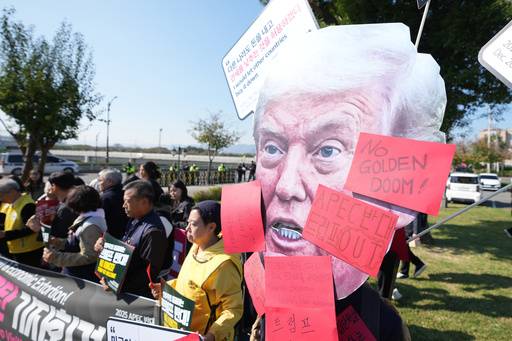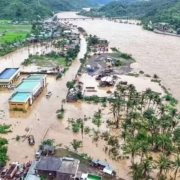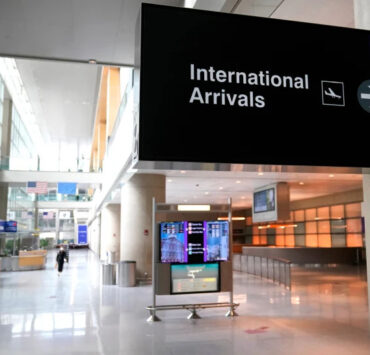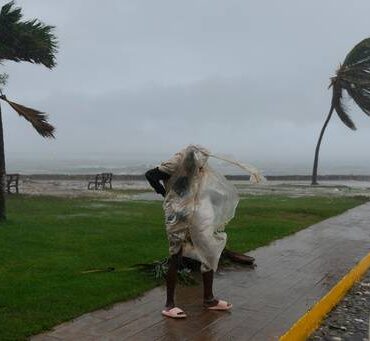S. Korea trade deal seems elusive as Trump seeks $350-B investment

GYEONGJU, South Korea—After a charm offensive in Japan that culminated in $490 billion in investment commitments, President Donald Trump met with South Korea’s leader on Wednesday as a trade deal with that country appears more elusive.
Top officials in Washington and Seoul say the sticking point for an agreement continues to be the logistics behind Trump’s demand that South Korea invest $350 billion in the United States.
Korean officials say putting up cash could destabilize their own economy, and they’d rather offer loans and loan guarantees instead. The country would also need a swap line to manage the flow of its currency into the United States.
The disparity between what Trump is asking for and what South Korea can deliver threatens to overshadow the meeting between Trump and South Korean President Lee Jae-myung in Gyeongju, a historical city playing host to the annual Asia-Pacific Economic Cooperation (Apec) summit.
‘Wedded’
Trump said the two countries are “wedded,” praising their “very special relationship” during remarks at a business forum. He also said they’re “very close” to a deal.
Speaking broadly about international trade, Trump suggested a more conciliatory approach than his usual confrontational stance.
“The best deals are deals that work for everybody,” he said.
Lee, speaking at the forum before Trump arrived, warned against trade barriers.
Apec’s role
“At a time when protectionism and nationalism are on the rise and nations focus on their immediate survival, words like ‘cooperation,’ ‘coexistence,’ and ‘inclusive growth’ may sound hollow,” he said. “Yet, paradoxically, it is in times of crisis like this that Apec’s role as a platform for solidarity shines brighter.”
Oh Hyunjoo, a deputy national security director, told reporters that the negotiations have been proceeding “a little bit more slowly” than expected.
“We haven’t yet been able to reach an agreement on matters such as the structure of investments, their formats and how the profits will be distributed,” she said on Monday.
It’s a contrast from Trump’s experience in Japan, where the government has worked to fulfill its commitment of $550 billion in investments as part of an earlier trade agreement. Commerce Secretary Howard Lutnick announced up to $490 billion in commitments during a dinner with business leaders in Tokyo.
Deal not ready
Trump bonded with Japan’s new prime minister, Sanae Takaichi, on his trip on Tuesday, taking her with him as he spoke to US troops aboard an aircraft carrier and then unveiling several major energy and technology projects in America to be funded by Japan.
In contrast, US Treasury Secretary Scott Bessent, speaking to reporters aboard Air Force One on Monday, said a deal wasn’t ready in South Korea.
“Just a lot of details to work out,” he said, although he suggested they were close.
For now, South Korea is stuck with a 25-percent tariff on automobiles, putting automakers such as Hyundai and Kia at a disadvantage against Japanese and European competitors, which face 15 percent.
Lee took office in June and had a warm meeting with Trump at the White House in August, when he cranked up the flattery. But there have been points of tension since then, notably a US immigration raid on a Hyundai plant in Georgia in September. More than 300 South Koreans were detained, sparking outrage and a sense of betrayal.
Lee said companies would likely hesitate to make future investments unless the visa system was improved.

















